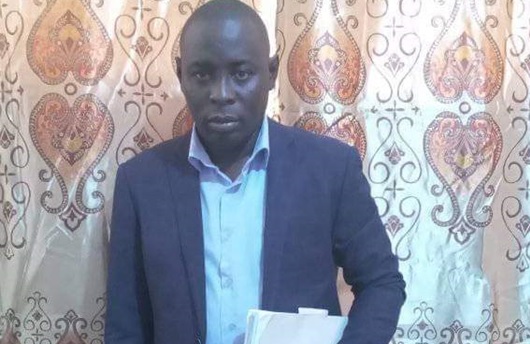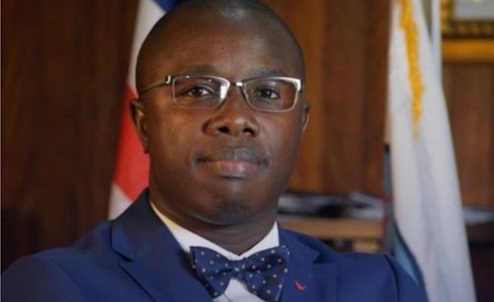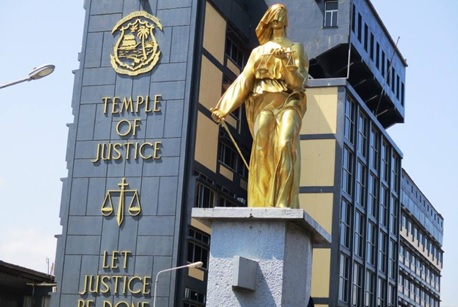MONROVIA – Emmanuel Kyne Robertson, recently appointed Assistant Superintendent at the Monrovia Consolidated School System (MCSS), has firmly defended the legality of his appointment, countering the objections raised by the Monrovia Consolidated School System Teachers Association (MCSSTA). Robertson’s defense comes just one day after the MCSSTA issued an ultimatum, demanding that President Joseph Nyuma Boakai rescind Robertson’s appointment.
In a letter obtained by this outlet, Robertson asserts his full legal right to serve in the position. He points to the official approval of his appointment by the MCSS Board, as evidenced by the signatures of board members on the document. Robertson argues that the Board’s authorization gives him the legitimate mandate to fulfill his duties as Assistant Superintendent, despite the claims to the contrary from the teachers’ association.
However, the MCSSTA, led by its President, Al Augustine Nyormui, has characterized Robertson’s appointment as a serious administrative error that needs to be rectified. During a press conference held on Wednesday, August 14, 2024, Nyormui contended that the appointment violates the 1964 Act governing the MCSS. Specifically, he cited Chapter 2, Section 24(d) of the Act, which, according to him, entrusts the responsibility of hiring and firing all MCSS staff, including the Assistant Superintendent, to the Superintendent of the MCSS. He stressed that such employment decisions must be made in accordance with established procedures and subject to the approval of the MCSS Council.
Nyormui further argued that President Boakai overstepped his authority by appointing Robertson as a volunteer Assistant Superintendent, in clear violation of the MCSS Act. He pointed out that the Assistant Superintendent position is a civil servant role and should not be filled through a presidential appointment. Nyormui claimed that Robertson has been occupying the position since March 2024, signing key documents and attending important meetings, despite not being officially placed on the MCSS payroll. Meanwhile, the previous Assistant Superintendent, Samuel M. Johnson, remains on the payroll, even though he was allegedly removed from the position in violation of proper hiring practices.
The MCSSTA President emphasized that Robertson’s continued occupancy of the role, without a formal appointment letter from the President or placement on the payroll, constitutes a flagrant violation of the 1964 MCSS Act. Nyormui also suggested that the letter circulating with the signatures of MCSS Board members is politically motivated and warned against politicizing educational matters. He called for a return to lawful procedures in order to maintain the integrity of the MCSS.
Despite the MCSS Board’s recent endorsement of Robertson’s appointment, the MCSSTA maintains that the decision to appoint staff members, including the Assistant Superintendent, falls solely within the purview of the Superintendent of Schools, not the Board or the President. This dispute raises questions about the future of Robertson’s role, as it remains unclear whether President Boakai will heed the MCSSTA’s seven-day ultimatum.
With just six working days remaining in the ultimatum, the leadership and political tensions surrounding the MCSS show no signs of resolution. The standoff between Robertson, the MCSSTA, and the President’s office underscores deeper conflicts over the governance of Liberia’s education system, and how key appointments should be handled in accordance with the law.
The MCSSTA continues to argue that this issue is more than just a political matter; it is about upholding the rule of law within the education system. Nyormui stressed that allowing politically motivated decisions to influence appointments would set a dangerous precedent for the MCSS and for public service more broadly. He urged all parties to refrain from politicizing educational issues and to focus on addressing the genuine concerns of the school system and its staff.
As the deadline for President Boakai to act approaches, the outcome remains uncertain. Observers are closely watching to see whether the President will revoke Robertson’s appointment or if the current arrangement will persist, deepening the leadership crisis within the MCSS. Meanwhile, the employees and stakeholders within the system are left in limbo, as they await a decision that could have significant implications for the future of the institution.







